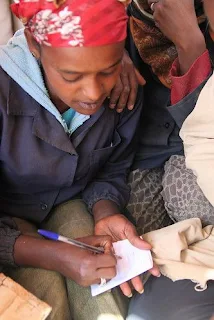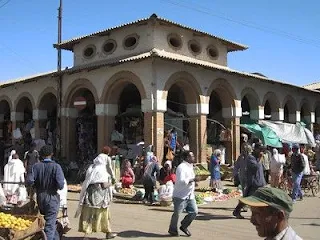Paying Your Diaspora Tax
For 26 years the 2% Eritrea diaspora tax has not been reviewed nor has the Eritrean gov. published financial records on how the diaspora tax is spent.
2% Eritrea diaspora tax is taxation without representation
 |
| Calculating the 2% Eritrea diaspora tax |
The diaspora tax or emigration tax on Eritreans living abroad is a sort of taxation without representation however, Eritrean consulates demand proof of diaspora tax payment to provide even the most basic consular services such as issuing visas to businesses and individuals, pursue an education, issuing Eritrean ID cards or any legal documents.
Eritrea’s large diaspora has been a source of vital remittances, funding its war for independence and providing 30% of the country’s Gross domestic product. Because of drought and a war with Ethiopia, about 1 million Eritreans live abroad, that means one out of every five Eritreans lives abroad.
Eritrea, pronunced eh·ruh·tree·uh is an African country located in Eastern Africa bordering the Red Sea, Ethiopia, Djibouti and Sudan. Eritrea is an impoverished African country, the 22nd smallest country in Africa and ranked 101st smallest country in the world.
In most countries, citizens and residents pay tax to the state to receive basic services. Residents and citizens part with a certain percent of their income expecting public hospitals, police, roads, railways, hospitals and schools to be built and maintained, social and cultural services to be developed and the nation’s security to be ensured.
 |
| Downtown Keren Eritrea |
Eritrean who do not pay cannot sell their properties in Eritrea or go home to visit their relatives. People who have never paid the tax can also face demands for massive back payments whenever they need any services from the Eritrean government.
The 2% gross income diaspora tax revenue is collected on Eritreans living abroad who pay vendors in Asmara, the capital and most populous city of Eritrea or the 2% tax is collected by the Foreign Consular Office. The 2% diaspora tax is Eritrea’s income source.
The Eritrean government is not the only county in the world who requires its citizens living aboard to pay taxes. If you are an American living abroad, you must file a US federal tax return and pay US taxes on your worldwide income no matter where you live at that time. Currently there are about 9 million U.S. citizens are living abroad.
In 2011, a British security council resolution condemned the tax and accused Eritrea of using the money to destabilize the Horn of Africa. It is unclear how much money Eritrea makes from the tax, or how it is spent because the country does not publish its financial records.
Imposed on Eritreans in 1997, most Eritreans abroad welcomed the 2% Eritrea diaspora tax as an opportunity to contribute to the rebuilding of their beloved East African country devastated by the Eritrean War of Independence also known as the 30-year war for independence from Ethiopia, September 1961 to May 1991 followed by the Eritrean–Ethiopian War, also known as the Badme War, May 1998 to June 2000.
 |
| Central Market in Asmara Eritrea |
The 2% diaspora tax is Eritrea’s largest income source.
Eritreans overwhelmingly approved independence in a 1993 referendum and at the time there was a general understanding that the 2% Eritrea diaspora tax would be a temporary payment arrangement. However, the Eritrean parliament has not convened since 1997, the 2% Eritrea diaspora tax simply stayed in place, becoming one of the main sources of revenue of the Eritrean government.
One Eritrean woman, who has been living in Britain since 1993, stopped paying the tax in 2002, “when I saw that it was just extortion and there was no accountability, and we don’t know where the money goes or what it is used for”. “I can’t go back home or sell my property there. Even if you are dead, and you want to be buried in your home country, you must pay and have a clearance to allow the body to be buried.”
The tax, levied on Eritreans living abroad to fund, according to the Eritrean government, development projects, is collected by Eritrea’s diplomatic and consular offices around the world. Failure to pay it in effect bars people from receiving consular help or assistance from the state, for example, if they want to get a passport or sell property in Eritrea.
The country’s closed and heavily sanctioned economy has been on the verge of collapse for decades, and citizens within its borders, many of them forced to serve in the military for most of their adult lives have little to no opportunity to generate taxable income. The Eritrean government has long been accused of spending more money on defense over agriculture, importing food and taking care of it's citizens.
The Eritrea government, since 1997 has not reviewed the 2% Eritrea diaspora tax nor has the Eritrean government published financial records disclosing how the money is spent. Eritrea has a strategic position along world's busiest shipping lanes of Assab and Massawa.
Eritrea has many natural resources, such as copper, granite, potash, gold and marble. However the 2% diaspora tax is one of Eritrea’s largest income source.
Over 50% of Eritrean's live below the poverty line not including an 8% unemployment rate. The hands of the local population are all but tied, the group best placed to change the country’s fortunes is the Eritrean diaspora. However Eritreans abroad should encourage the governments of the countries they are residing in to take action against the collection of the unaccounted for 2% diaspora tax.
More links to articles you will find thought provoking.
Part of the Resource Wars Archive
⚡ Explore Geopolitical Intelligence →

























